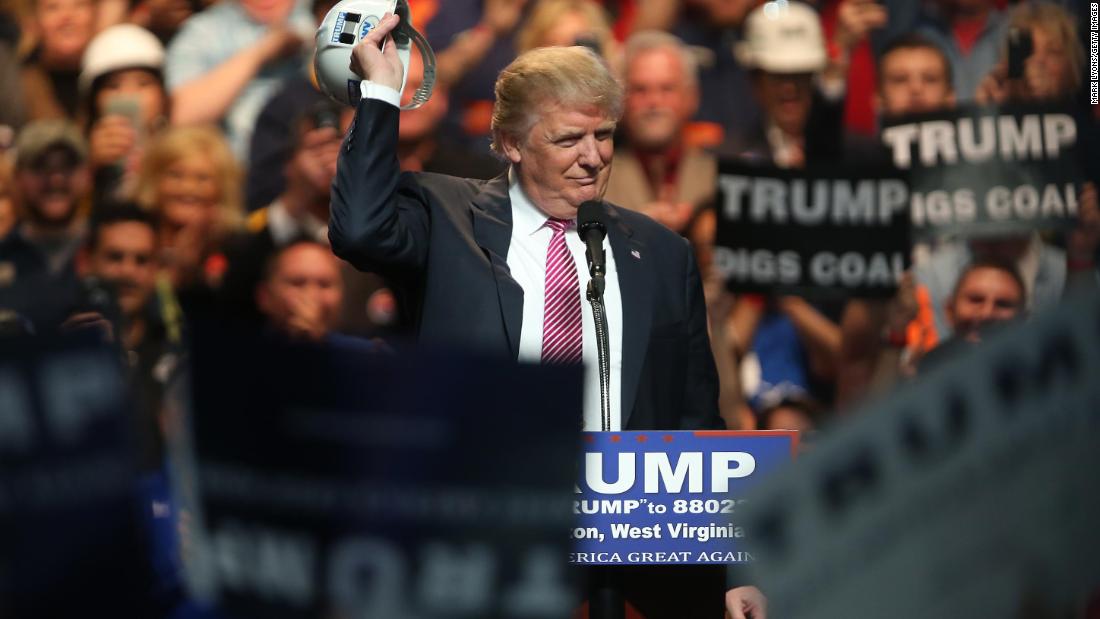[ad_1]
But not everyone.
You see where this is going. The Trump administration is actively looking for new ways to show its disdain for the issue of climate change.
The investigation isn’t even defensible as a push to solidify US standing as the top producer of oil and natural gas, an economic goal the Trump administration has pursued with its efforts to make it easier to build oil pipelines and its troubled effort to open US shores and public lands to more oil exploration.
Going after private companies for willingly raising their fuel economy standards in conjunction with California, which has this legal power under the Clean Air Act, is nothing short of openly hostile to the idea that any government anywhere should do anything at all to combat something that is undeniably a crisis. The Trump administration has also separately fought California’s ability to proceed under the Clean Air Act.
“The Trump administration is hellbent on repealing the clean car standards, which was the most significant US governmental action program to date to avert climate change and would save consumers tens of billions if left intact,” said Robert Weissman, president of the consumer advocacy organization Public Citizen.
He added, “The antitrust laws were never intended to promote competition in more pollution.”
That may be. But we know that at least in his own mind Trump equates the light bulb move with the new Justice Department move because he put them together himself, speaking to reporters Wednesday in the Oval Office.
After displaying that Sharpied-up hurricane map to prove that the hurricane was at one point headed toward Alabama, the President was asked for his rationale on rolling back the regulations on energy-efficient light bulbs.
He didn’t seem to have one, since he said he’d get a report on that.
Here’s the full exchange, including his pivot from light bulbs to cars:
We’ll give you a report on that. We’re doing a report on all of that. But there’s a very good rationale when you hear it. And what’s saved is not — is not worth it. For the little they save, and what people were going through, it is not worth it. And price was another thing. OK?
Same thing with cars. In California, they have a standard where the cars are going to have to be much more expensive and won’t be as good. So we’re giving an option to car companies to create a better car for less money — meaning less money to the consumer.
So if the consumer can save $3,000 on a car and have a very energy-efficient car, but not energy-efficient so that the car doesn’t work well — which is happening — we’re giving them a tremendous option, if they want the option. We’re giving it to the consumer, but we’re giving it to the car company to pass — companies to pass along. And we’ll see how that one works out.
We’re doing that. We’re doing a lot of that. We want to make it good for the consumer. If we can build a less expensive car that’s better, we like that.
Trump’s argument that fewer standards are in the interest of the consumer ignores the fact that more emissions endanger consumers.
Some other things could also be at play here. Trump has long been at legal war with California on immigration. But the state’s beef with him is largely centered on climate change. Where the US Environmental Protection Agency has turned against regulation in the name of cutting greenhouse gases, California has stepped into the void.
Asked to comment on the administration’s actions, Bloomberg said in a statement:
“This new legal challenge is a desperate and shameful attempt by the Administration to avoid embarrassment and protect its friends in the fossil fuel industry over people’s lives. The rest of us would pay the price through more pollution, more health problems, and more greenhouse gases that fuel climate change.”
Republicans have long sought to protect the rights of states. But in this case, where climate change and improved efficiency are at play, the administration wants the federal government to have final say. But this is larger than a federalism issue if you believe that climate change is a growing crisis, in which case efforts by the federal government not only to ignore but also to undermine action start to seem malicious.
[ad_2]
Source link


